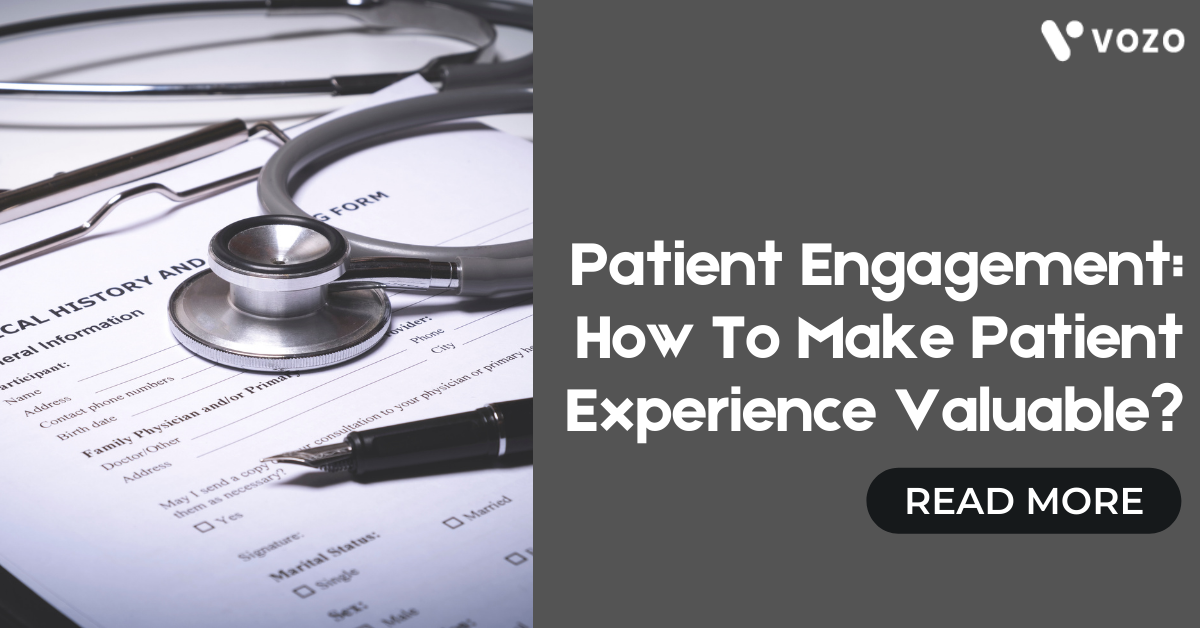Patient Engagement: How To Make Patient Experience Valuable?
How to proactively engage with patients who are likely to be impacted due to chronic illness and health risk profiles? Improved patient engagement is the right answer for this question. Yes, as the healthcare sector is attaining a dramatic shift towards value-based care, providers are striving to achieve patient engagement today.
It is proved that patient engagement is a key to improve clinical and health outcomes and also to reduce health costs. So how you can make the patient experience valuable?
Patient engagement challenges
The patient experience mainly focuses on building trust and helps to identify chronic illness very early and improves health outcomes. Even though there are more technological advancements like a patient portal, the providers are still facing the challenges of engaging their patients in a better way.
Challenges for patients
Effective healthcare requires clear communication and understanding between a patient and their care team. This empowers a patient to take responsibility for their wellbeing. Therefore, the patient must understand the medical information that is being provided to them.
Some patients prefer a high-level overview of their diagnosis while others may request a much more detailed explanation of their diagnosis and treatment plan. In both instances, several factors should be kept top of mind when physicians interact with their patients.
Patient’s cultural background: They may not feel comfortable asking medical questions or advice.
Patient’s education level: A lower level of education may hinder patients from understanding medical information, processes, or treatment options.
Cost consideration: High medical costs may prevent patients from seeking appropriate treatment.
Patient’s motivation: Some patients may lack the motivation to take the necessary steps to improve their health.
RELATED: How To Increase Patient Engagement With Telehealth?
Challenges for physicians
Physicians face their own set of challenges in the processes of encouraging patient engagement.
Lack of modern technology: Patient engagement technology is a recent concept in healthcare. Many physicians have not yet invested in a technology that provides a way for patients to keep in constant communication with their care team. The Patient Engagement platform offered by iPatientCare effectively addresses this lack of communication between physicians and patients.
Lack of training: Without proper training of new online tools, physicians can begin to feel overwhelmed. Investing in training will enable practices to use the platforms to their full potential.
Lack of time: Physicians often lack sufficient time to allocate more than 10 or 15 minutes to each patient.
Lack of patient feedback: The most effective way to evaluate your organization’s patient engagement success is to ask your patients for their feedback. Physicians may feel they have provided appropriate medical education, while the patient is left feeling overwhelmed or unfit to take the first steps to involvement in their healthcare. Without asking your patients what they think, miscommunication may become commonplace.
Interactions between patients and providers across the continuum of care contribute to patient experience and influence a patient’s willingness and ability to engage with the healthcare system. Innovations in healthcare delivery and technology have allowed clinicians to enhance delivery and access to health services and information.
RELATED: Top 8 Challenges In Improving Patient Engagement
However, the evolution to a more patient-centered system is not a simple task. Physicians will be expected to play a central role in assuring coordination of care across the continuum.
Final Thoughts
Engaging patient’s increases satisfaction, increases retention rate, and enhances care quality with fee-for-service and value-based care models. Yet healthcare organizations have a long way to go to build a comprehensive strategy that can strengthen their existing infrastructure and support patient care.
When it comes to optimal health outcomes and minimize risks to patient safety, we simply can’t overstate the importance of patient engagement.
Creating a better patient portal and giving patients the ability to manage their health increases patient engagement. Schedule a free demo to know how the Vozo patient portal helps your practice.
About the author

With more than 4 years of experience in the dynamic healthcare technology landscape, Sid specializes in crafting compelling content on topics including EHR/EMR, patient portals, healthcare automation, remote patient monitoring, and health information exchange. His expertise lies in translating cutting-edge innovations and intricate topics into engaging narratives that resonate with diverse audiences.













